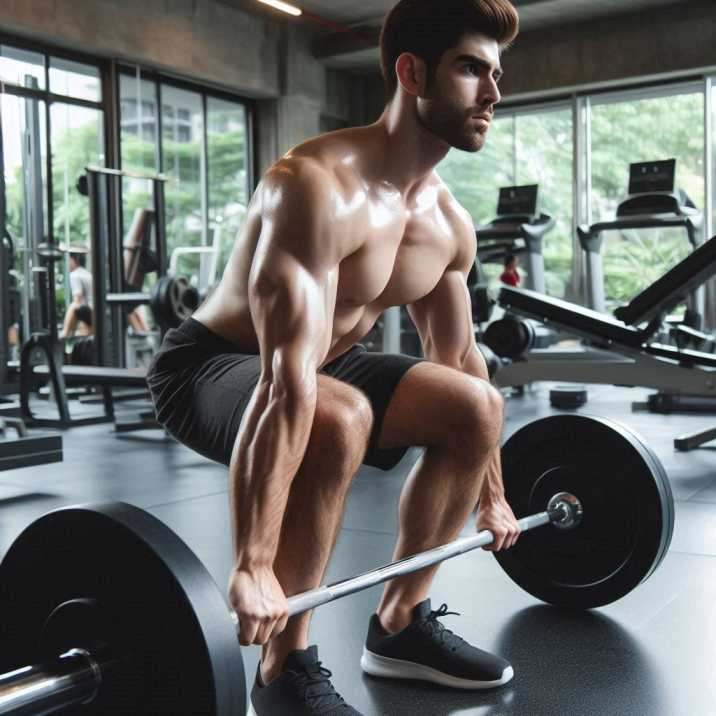Introduction
Table of Contents
Ever wondered if you can combine gym workouts with martial arts training? You’re not alone. Many fitness enthusiasts and athletes face this dilemma. Both disciplines have unique benefits, but merging them could open new possibilities for achieving peak fitness. In this post, we’ll explore how you can effectively mix gym and martial arts training, highlight the advantages, and offer practical tips to make the most of both worlds.

Can Gym and Martial Arts Work Together?
Understanding the Basics
Combining gym workouts and martial arts might seem daunting at first. However, understanding each discipline’s objectives can make the merger smoother. Gym workouts generally focus on building strength, endurance, and muscle tone. On the other hand, martial arts prioritize agility, technique, and mental discipline. When combined, these elements can create a well-rounded fitness regimen.
Benefits of Combining Gym and Martial Arts
- Improved Strength and Endurance
Regular gym sessions can enhance your strength and endurance, crucial for any martial artist. Lifting weights, doing cardio, and participating in high-intensity interval training (HIIT) can help you last longer during martial arts practice.
- Enhanced Flexibility and Agility
Martial arts training often includes stretching routines that can improve flexibility, reducing the risk of injuries during gym workouts. The agility gained from martial arts can also make your gym exercises more effective.
- Better Mental Focus
Martial arts emphasize mental discipline, focus, and stress relief. Incorporating these aspects can make your gym workouts more efficient by improving concentration and reducing distractions.
Practical Tips for Combining Gym and Martial Arts
Planning Your Schedule
Balancing both activities requires careful planning. Consider alternating days between gym sessions and martial arts classes. For instance, you could work out at the gym on Mondays, Wednesdays, and Fridays, and practice martial arts on Tuesdays, Thursdays, and Saturdays.
Listening to Your Body
Pay close attention to how your body responds. Overtraining can lead to fatigue and injuries. Make sure to include rest days in your schedule to allow your muscles to recover.
Setting Goals
Set clear, achievable goals for both gym workouts and martial arts. Whether it’s lifting a certain weight, mastering a new technique, or improving endurance, having goals will keep you motivated and focused.
Benefits of Gym Workouts for Martial Artists
Increased Power
Strength training at the gym can significantly increase the power behind your martial arts moves. Exercises like deadlifts, squats, and bench presses build the muscle strength needed for powerful kicks, punches, and throws.
Enhanced Cardiovascular Health
Cardio workouts, such as running or cycling, enhance cardiovascular health, which is crucial for stamina in martial arts. Improved heart health ensures that you can sustain longer training sessions without getting winded.
Injury Prevention
Strength training helps in fortifying the muscles around your joints, thereby reducing the risk of injuries. Stronger muscles support your joints better, making them less susceptible to strains and sprains during martial arts practice.
How Martial Arts Complements Gym Workouts
Improved Coordination
Martial arts training improves hand-eye coordination, balance, and proprioception. These skills can enhance your performance in various gym exercises, especially those requiring stability and control.
Enhanced Flexibility
The stretching and mobility exercises in martial arts can make your body more flexible, which is beneficial for gym workouts. Flexibility aids in achieving a full range of motion during exercises, enhancing their effectiveness.
Mental Resilience
The mental discipline gained from martial arts helps in pushing through challenging workouts at the gym. It fosters a mindset of perseverance and resilience, which is essential for any fitness regime.
Creating a Balanced Routine
Strength Training for Martial Artists
Focus on compound movements that work for multiple muscle groups. Exercises like squats, deadlifts, and bench presses should be staples in your gym routine. These exercises build overall strength and power, which are essential for martial arts.
Cardio for Endurance
Incorporate cardio sessions to build endurance. Running, swimming, or cycling can improve cardiovascular health, ensuring you have the stamina for prolonged martial arts sessions.
Flexibility Drills
Include flexibility drills in your routine. Stretching exercises not only improve flexibility but also aid in muscle recovery. Incorporate yoga or Pilates sessions to enhance flexibility and core strength.

Nutrition for Combined Training
Balanced Diet
A balanced diet is crucial for anyone combining gym workouts with martial arts. Ensure you consume adequate protein for muscle repair, carbohydrates for energy, and fats for overall health. Consider consulting a nutritionist to create a diet plan tailored to your needs.
Hydration
Staying hydrated is vital. Both gym workouts and martial arts training can be physically demanding, leading to significant fluid loss. Drink plenty of water before, during, and after your workouts to stay hydrated.
Supplements
Supplements like protein powders, BCAAs (Branched-Chain Amino Acids), and multivitamins can support your training. However, it’s essential to consult with a healthcare professional before starting any supplement regimen.
Training Smart
Avoiding Overtraining
Overtraining can lead to burnout and injuries. Ensure you listen to your body and give yourself adequate rest. Incorporate rest days and light training days to allow your body to recover.
Monitoring Progress
Keep track of your progress in both gym workouts and martial arts. Use a journal or a fitness app to log your activities, track improvements, and identify areas that need more focus.
Seeking Professional Guidance
Consider working with a personal trainer and a martial arts instructor. Professional guidance can help you create a balanced routine, correct your form, and ensure you’re on the right track to achieving your fitness goals.
The Importance of Rest and Recovery
Sleep
Quality sleep is crucial for muscle recovery and overall health. Aim for 7-9 hours of sleep per night to ensure your body has enough time to repair and rejuvenate.
Active Recovery
Incorporate active recovery days into your routine. Activities like light jogging, swimming, or yoga can help in muscle recovery without putting too much strain on your body.
Massage and Stretching
Regular massages and stretching can alleviate muscle soreness and improve flexibility. Consider incorporating these into your weekly routine to aid recovery.
Integrating Martial Arts Styles
Choosing the Right Martial Art
Different martial arts offer various benefits. For example, Brazilian Jiu-Jitsu focuses on ground fighting and grappling, while Muay Thai emphasizes striking. Choose a martial art that complements your fitness goals and interests.
Cross-Training in Multiple Styles
Cross-training in different martial arts styles can provide a well-rounded skill set. It can also keep your training routine exciting and challenging.
Community and Support
Joining a martial arts community can provide motivation and support. Training with others can push you to improve and stay committed to your fitness goals.
The Role of Mental Discipline
Focus and Concentration
Both gym workouts and martial arts require focus and concentration. Practicing mindfulness and meditation can enhance your mental discipline, making your training sessions more productive.
Stress Relief
Martial arts and gym workouts can be excellent stress relievers. Physical activity releases endorphins, which can improve your mood and reduce stress.
Goal Setting
Setting and achieving goals in both disciplines can boost your confidence and motivation. Celebrate your milestones and keep challenging yourself to reach new heights.
Table of information
| Section | Key Points |
|---|---|
| Introduction | Combining gym workouts with martial arts can create a comprehensive fitness regimen. |
| Can Gym and Martial Arts Work Together? | Understand the objectives of each discipline: gym workouts for strength/endurance, martial arts for agility/technique. |
| Benefits of Combining Gym and Martial Arts | Improved strength and endurance from gym sessions benefit martial arts. Enhanced flexibility and agility from martial arts benefit gym workouts. Better mental focus. |
| Practical Tips for Combining Gym and Martial Arts | Plan your schedule to alternate between gym and martial arts. Listen to your body to avoid overtraining. Set clear, achievable goals for both disciplines. |
| Benefits of Gym Workouts for Martial Artists | Increased power from strength training. Enhanced cardiovascular health from cardio workouts. Injury prevention through muscle strengthening. |
| How Martial Arts Complements Gym Workouts | Improved coordination and balance. Enhanced flexibility aids in gym exercises. Mental resilience for challenging workouts. |
| Creating a Balanced Routine | Focus on compound movements for strength training. Incorporate cardio for endurance. Include flexibility drills. |
| Nutrition for Combined Training | Follow a balanced diet with adequate protein, carbs, and fats. Stay hydrated. Consider supplements with professional guidance. |
| Training Smart | Avoid overtraining by incorporating rest days. Monitor progress using journals or fitness apps. Seek professional guidance from trainers. |
| The Importance of Rest and Recovery | Aim for 7-9 hours of sleep per night. Include active recovery days. Use massages and stretching for muscle recovery. |
| Integrating Martial Arts Styles | Choose a martial art that complements your fitness goals. Cross-train in multiple styles for a varied skill set. Join a martial arts community for support. |
| The Role of Mental Discipline | Enhance focus and concentration with mindfulness. Use physical activity as a stress reliever. Set and achieve goals for confidence and motivation. |
| Conclusion | Combining gym workouts and martial arts offers holistic fitness benefits. Plan carefully, listen to your body, and maintain a balanced diet for best results. |
| FAQs | Can combine both on the same day with careful planning. Recommended 3-4 gym sessions and 2-3 martial arts classes per week. Nutrition tips before and after workouts. Injury prevention tips. Cost considerations. |
Conclusion
Combining gym workouts and martial arts training offers a holistic approach to fitness. The strength and endurance from gym sessions complement the agility and focus gained from martial arts. By carefully planning your routine, listening to your body, and maintaining a balanced diet, you can enjoy the best of both worlds.
Ready to take your fitness to the next level? Join our community and explore how integrating gym workouts with martial arts can transform your fitness journey. Start now, and become the best version of yourself!
FAQs About Combining Gym and Martial Arts
Can I do gym workouts and martial arts on the same day?
Yes, you can, but it’s essential to listen to your body and ensure you don’t overtrain. Consider doing lighter gym sessions if you have intense martial arts training on the same day.
How many times a week should I train?
It depends on your fitness goals and experience level. A balanced routine could include 3-4 gym sessions and 2-3 martial arts classes per week.
What should I eat before and after workouts?
Before workouts, consume a balanced meal with protein and carbohydrates. After workouts, focus on protein for muscle repair and carbohydrates to replenish energy stores.
How do I prevent injuries?
Ensure you warm up before workouts, cool down after, and incorporate flexibility and strength training into your routine. Listen to your body and avoid pushing through pain.
Is it expensive to combine both?
It can be, depending on gym memberships and martial arts classes. However, many find the investment worthwhile for the physical and mental benefits gained.


